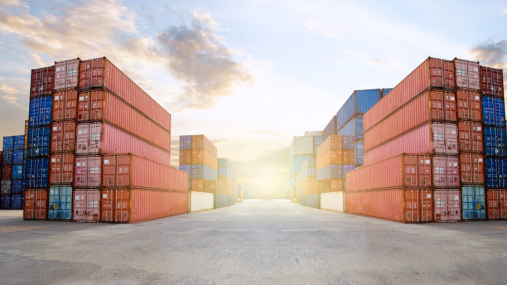
Press releases » EUROFER Welcomes the Extension of Anti-Dumping and Countervailing Duties to Imports of Stainless Steel Cold-Rolled Flat Products from Taiwan, Turkey, and Vietnam and the introduction of import requirements connected to strict monitoring of imports
EUROFER Welcomes the Extension of Anti-Dumping and Countervailing Duties to Imports of Stainless Steel Cold-Rolled Flat Products from Taiwan, Turkey, and Vietnam and the introduction of import requirements connected to strict monitoring of imports
Downloads and links
Recent updates

Brussels, 07 May 2024 – The European Commission has today published two Regulations extending the anti-dumping and countervailing measures in force on imports of stainless steel cold-rolled flat products (SSCR) originating in Indonesia to imports of SSCR from Taiwan, Turkey and Vietnam. EUROFER welcomes the extension of the duties and the introduction of import requirements connected to strict monitoring of imports.
The European Commission Implementing Regulations extend the existing anti-dumping duty rate of 19.3% to imports of SSCR from Taiwan and Vietnam and extend the existing countervailing duty rate of 20.5% to imports of SSCR from Taiwan, Turkey and Vietnam. These investigations leading up to these measures were initiated in August 2023 following two applications submitted by EUROFER.
The European Steel Association (EUROFER) recognises these extensions of the measures applied to SSCR from Indonesia as another important step towards restoring a level playing field for the European stainless industry. “The Commission’s investigation has confirmed that a significant circumvention is taking place through imports from Taiwan, Turkey and Vietnam”, said Axel Eggert, Director General of the European Steel Association (EUROFER), “The anti-circumvention measures published today are important to ensure the complete effectiveness of the original measures and to avoid that artificially cheap, dumped, and subsidised semi-products (stainless slabs and hot rolled coils) sourced from Indonesia freely enter the European market, endangering the European Stainless Steel industry.”
Given the severity of the circumvention practices identified, the European Commission is introducing novel import requirements. It will apply strict monitoring on imports from Taiwan, Turkey and Vietnam in particular to determine if they are made from steel melted and poured in Indonesia. “Robust enforcement mechanisms for monitoring and import requirements are imperative. The Commission has to be ready to promptly react and take all necessary actions to annul any risk of circumvention. For this purpose, EUROFER intends to continue collaborating closely with the Commission and the relevant authorities in the Member States” concluded Mr. Eggert.
Contact
Lucia Sali, Spokesperson and Head of Communications, +32 2 738 79 35, (l.sali@eurofer.eu)
About the European Steel Association (EUROFER)
EUROFER AISBL is located in Brussels and was founded in 1976. It represents the entirety of steel production in the European Union. EUROFER members are steel companies and national steel federations throughout the EU. The major steel companies and national steel federation of Turkey and the United Kingdom are associate members.
The European Steel Association is recorded in the EU transparency register: 93038071152-83.
About the European steel industry
The European steel industry is a world leader in innovation and environmental sustainability. It has a turnover of around €130 billion and directly employs around 306,000 highly-skilled people, producing on average 152 million tonnes of steel per year. More than 500 steel production sites across 22 EU Member States provide direct and indirect employment to millions more European citizens. Closely integrated with Europe’s manufacturing and construction industries, steel is the backbone for development, growth and employment in Europe.
Steel is the most versatile industrial material in the world. The thousands of different grades and types of steel developed by the industry make the modern world possible. Steel is 100% recyclable and therefore is a fundamental part of the circular economy. As a basic engineering material, steel is also an essential factor in the development and deployment of innovative, CO2-mitigating technologies, improving resource efficiency and fostering sustainable development in Europe.

Brussels, 28 July 2025 — The European steel value chain is at a critical juncture. Deindustrialization is accelerating across both steel production, distribution and processing, threatening the resilience, competitiveness, and long-term sustainability of a sector essential to Europe's strategic autonomy and industrial base.
Brussels, 29 July 2025 – The proposal for a ‘highly effective’ new trade measure to counter global overcapacity and preserve the European steel industry’s capacities, published yesterday by France on behalf of a group of 11 Member States, is a timely initiative. The non-paper sets a clear course towards a comprehensive steel trade measure to replace the current safeguard regime at a critical moment, as the negative impacts of global overcapacity on the European steel industry continue to grow, says the European Steel Association (EUROFER).
Brussels, 28 July 2025 – The deal on tariffs struck by the EU with the U.S. limits the damage in the current circumstances, but the impact on European steel remains dramatic as long as 50% tariffs are still applied. A potential joint action EU-U.S. to address global overcapacity and a possible return to a tariff-rate quota system for EU exports to the U.S., as hinted at by Commission President Ursula von der Leyen, are still vague and lack the necessary details to the bring the economic certainty needed by EU steel producers, says the European Steel Association.